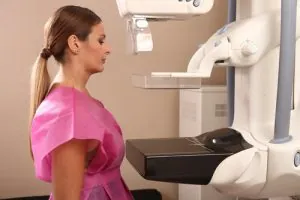7 Ways to Reduce Your Breast Cancer Risk
The statistics are staggering. Today, the lifetime risk of getting breast cancer is about 1 in 8 for U.S. women and 1 in 1,000 for U.S. men. Although there is no sure way to prevent breast cancer, there are things we can do to significantly reduce our breast cancer risk. And there are steps we can take to find it early —when it’s most treatable —if it does occur. Follow these 7 steps to minimize your breast cancer risk.
1. Know your family history, even your father’s.
You may be at a higher risk of breast cancer if you have family members (parents, siblings, grandparents, aunts, uncles, cousins, nieces, and nephews) who have developed breast, ovarian, or prostate cancer—especially at an early age.
Men and women with a strong family history of cancer may want to consider genetic counseling. Consult with your doctor or a genetic counselor.
2. Watch your weight and give your body the nutrients it needs.
Maintaining a healthy weight throughout life and nourishing your body with fruits and vegetables can help lower the risk of breast cancer. Studies have shown that women’s breast cancer risk is increased with obesity (being extremely overweight), especially after menopause. Obesity is probably a risk factor for male breast cancer as well.


3. Get moving!
Studies have conclusively shown that exercise can help cut down your breast cancer risk and even help breast cancer survivors live longer. So get out there and dance, run, swim, bike, or walk. Exercise at a moderate intensity for at least 30 minutes every day.
Other examples of moderate intensity exercise include:
- Cleaning such as washing windows, vacuuming, and mopping
- Tennis doubles
- Mowing lawn (power mower)
4. Avoid tobacco.
If you’re a smoker, quit! Smoking not only causes many different cancers, including breast cancer, but it can also damage nearly every organ in your body, including the lungs, heart, blood vessels, eyes, skin, and bones.
Smoking causes several diseases and is linked to a higher risk of breast cancer in younger, premenopausal women.
Avoid secondhand smoke whenever possible—it can be just as damaging. Research also has shown that there may be a link between hefty second-hand smoke exposure and breast cancer risk in postmenopausal women.
5. Limit your alcohol intake.
Women should limit their alcohol intake to less than 3 drinks per week. New studies suggest that women who drink 3 to 6 drinks per week of any type of alcohol have a 15% increase in their risk of breast cancer.
Men can have high estrogen levels as a result of being heavy users of alcohol, which can limit the liver’s ability to regulate blood estrogen levels.


6. Avoid or limit Hormone Replacement Therapy.
Research has shown that menopausal women who take hormone replacement therapy (HRT) may be more likely to develop breast cancer. Talk to your doctor about the different options to manage the side effects of menopause, and the risks and benefits of each.
7. Get screened.
Monthly self-breast exams and annual mammograms for women don’t prevent cancer, but they can help find cancer at the earliest stages when it’s most treatable. Please consult your physician for a specific screening schedule tailored to your risk profile.

Sign-up to Stay Informed About Cancer Research Breakthroughs with NFCR!
Cancer research breakthroughs are constantly introducing new tools in the prevention, early detection, and treatment of cancer. Support cancer research. Without funding, we are not able to sustain our efforts to find a cure for breast cancer- and all cancers.
(This blog was originally published on October 21, 2016 and updated on October 18, 2017)












